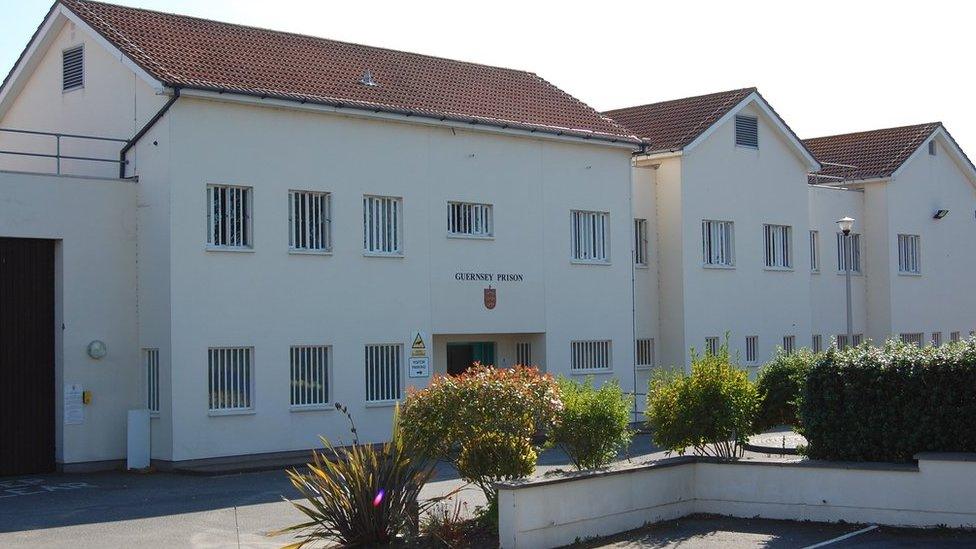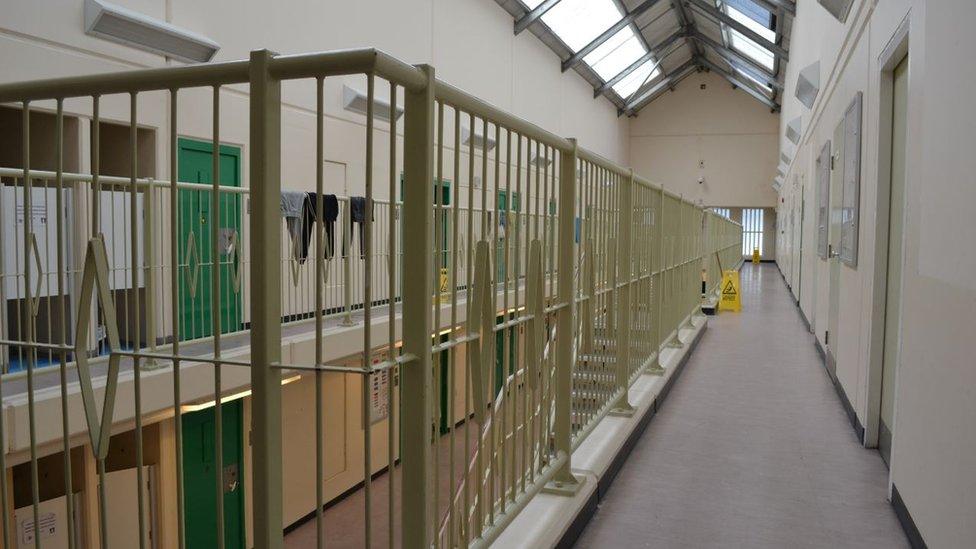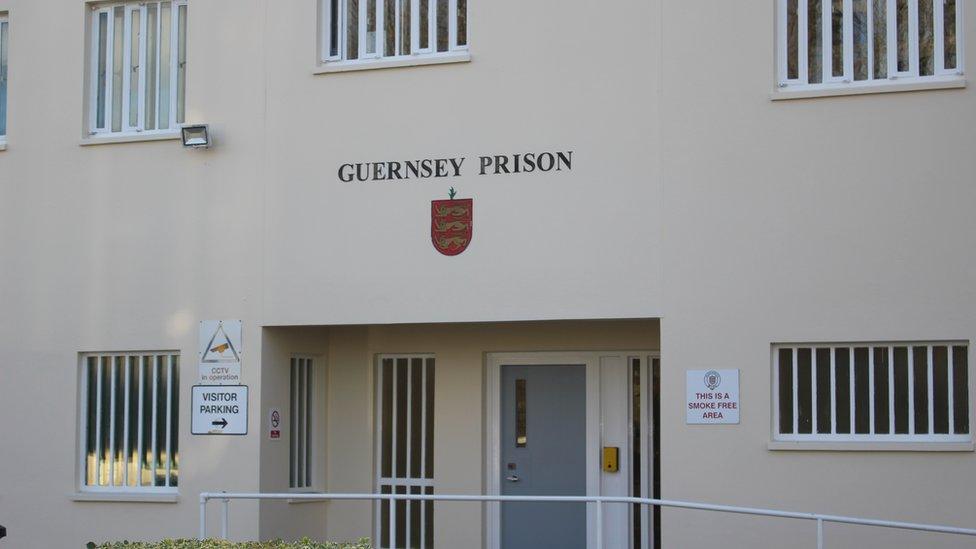Guernsey Prison considers trauma-informed attitude
- Published

The prison is considering a transformation of the way it deals with offenders
Guernsey Prison is considering transforming the way it deals with offenders to be more trauma-informed.
It comes after a health improvement conference collated research from Scandinavia about trauma-informed, external social care, which takes on how past events have affected someone.
Staff said research showed this had cut Scandinavian reconviction rates by 45%.
Prison Governor John De Carteret said it was important to try and "change the narrative".
He said: "Lots of prisoners, they're actually medicalising adverse childhood experiences.
"It's really trying to change the narrative around that stigma around being a drug mis-user to a drug user, and trying to see what we can do as an organisation to break down some of those barriers, which go on to lead to more problems in terms of offending behaviour when people are released."

Guernsey Prison is the only prison on the island
Prison psychotherapist Sarah Craske said she thought the island was "very much moving toward" such an approach.
She said the Scandinavian system was "all about training prisoners to step up, to take responsibility for their behaviours.", such as them having to organise their own meetings with officials and agencies.
James Treadwell, a professor of criminology at Staffordshire University, has urged caution, saying there was a need to "strike a balance".
He said "What the Scandinavian model tries to do ... is really to try and promote prisoners as responsible for their own self-management."
He added: "I do urge caution, because I think there's a danger that progressives can also lose sight at times of the wider context.

The prison has accommodation to house a maximum of 134 prisoners
"Ultimately, [punishment] it's about self-responsibility, and that self-responsibility involves taking responsibility for the harm and the damage that you do to other people around you by the crimes that you commit.
"Done correctly, it's not a soft option. The problem is, though, that it can also be used in a kind of manipulative way - as justification, rather than as a means of taking responsibility."

Follow BBC Guernsey on Twitter, external and Facebook, external. Send your story ideas to channel.islands@bbc.co.uk, external.